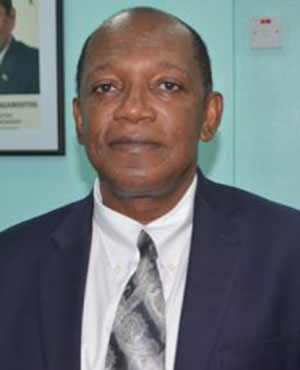State Assets Recovery Agency (SARA) Special Assistant Eric Phillips has stated that accusations of conflict of interest levelled against him have “no substance to the claim.”
In a public statement, Phillips admitted that he was member of the African Business Roundtable (ABR), which applied for oil blocks in 2016 but said that he became inactive in December 2016 and was not appointed to SARA until May of 2017.
“Yes, I was a member of the ABR Group that applied but was not lead person involved in the application and had very little to do with it since December 2016. My appointment with SARA was May 2017,” he said, while adding that the group was not awarded any of the oil blocks it applied for.
Concerns about a conflict of interest were raised after it was made public that Phillips, who is investigating the questionable award of oil blocks licences by the former PPP/C administration shortly before the 2015 general elections, was Director of a Company which had also applied for blocks.
Phillips, however, is arguing that at the time of his appointment as part of the team investigating the award, he was no longer an active member of ABR “hence the only conflict of interest is at the level of perception not in substance.”
Phillips appears to believe that a conflict of interest would exist only if he had been awarded oil blocks as he stressed that Dr Clive Thomas, who heads SARA, would have never entrusted him with such an investigation if he were the owner of an oil block.
The Integrity Commission (Amendment of Code of Conduct) Order 2017 stipulates that “a conflict of interest arises where a public official makes or participates in the making of decision in the execution of his or her office and at the same time knows or ought to have reasonably have known, that the making of that decision, there is material beneficial opportunity either directly or indirectly to further his or her private interest or that of a member of his or her family or any other person or entity.”
It further states that a person in public life shall, in order to protect and uphold the public interest, take reasonable steps to avoid, resolve and disclose any material conflict of interest, financial or non-financial, that arises or is likely to arise, between his or her personal interest and his or her official duties; declare any conflict of interest in writing to the relevant authority as soon as possible after becoming aware of the conflict of interest; and refuse or relinquish any outside employment, shareholding or directorship which create conflict.
Phillips further criticised reports which highlight the fact that he is Director of several companies, such as a fishing company, a pharmaceutical company and a logistics company, “as if this is in anyway related to the application for the oil block or to the Preliminary Investigation into the Canje and Kaieteur blocks.”
According to Phillips, these reports “made it seen as if I was doing something illegal in establishing companies even though they were private sector companies that had nothing to do with government business.”
“None of the companies I am on as a Director, be it the logistics company or the fishing company etc are the recipients of any grants or assistance from the government of Guyana,” he stressed.
Stabroek News has previously reported that days before the May 11th, 2015 general and regional elections, in which the PPP/C was voted out after over two decades in power, then President Donald Ramotar had signed a contract with JHI and Associates (Guyana) Inc for the Canje Block. Mid-Atlantic Oil & Gas Inc and ExxonMobil, which is Block Operator, also have participating interests in the Canje Block. In February of last year, French oil major Total announced that it had bought a 35% working interest in the Canje Block, in an agreement it signed with both JHI and Mid-Atlantic Oil & Gas Inc. The two companies, it said, will retain a shared 30% interest alongside operator ExxonMobil.
Ramotar told Stabroek News recently that the then Minister of Natural Resources Robert Persaud had made a case for JHI and Mid-Atlantic Oil and Gas Inc.
Just prior to the 2015 elections, Ramotar had also signed an agreement with Ratio Energy Limited and Ratio Guyana Limited for the Kaieteur Block. He has said that his award of contracts to the companies shortly before the elections should not be seen as questionable.
These awards became the subject of an investigation after “whistleblowers” contacted SARA on the matter.
Thomas told the Sunday Stabroek in a recent interview that a “mix of several things” led to the commencement of the investigation of the oil blocks awards. He recounted that some individuals had called and written to the agency indicating that there should be a serious focus on this topic. Some of them, he related, had specific information and acted “more or less as whistleblowers and that started our investigation.”
Pointing out that he and his staff are now in the process of collecting data, he explained that the initial concern was with the Kaieteur and Canje blocks.
The individuals who contacted the agency, he said, did not raise concerns about the ExxonMobil-controlled Stabroek block. He said that this may have been because the award of that licence was decided about a decade before 2015. The Stabroek Block was initially awarded in 1999 and its Production Sharing Agreement renegotiated in 2016.






